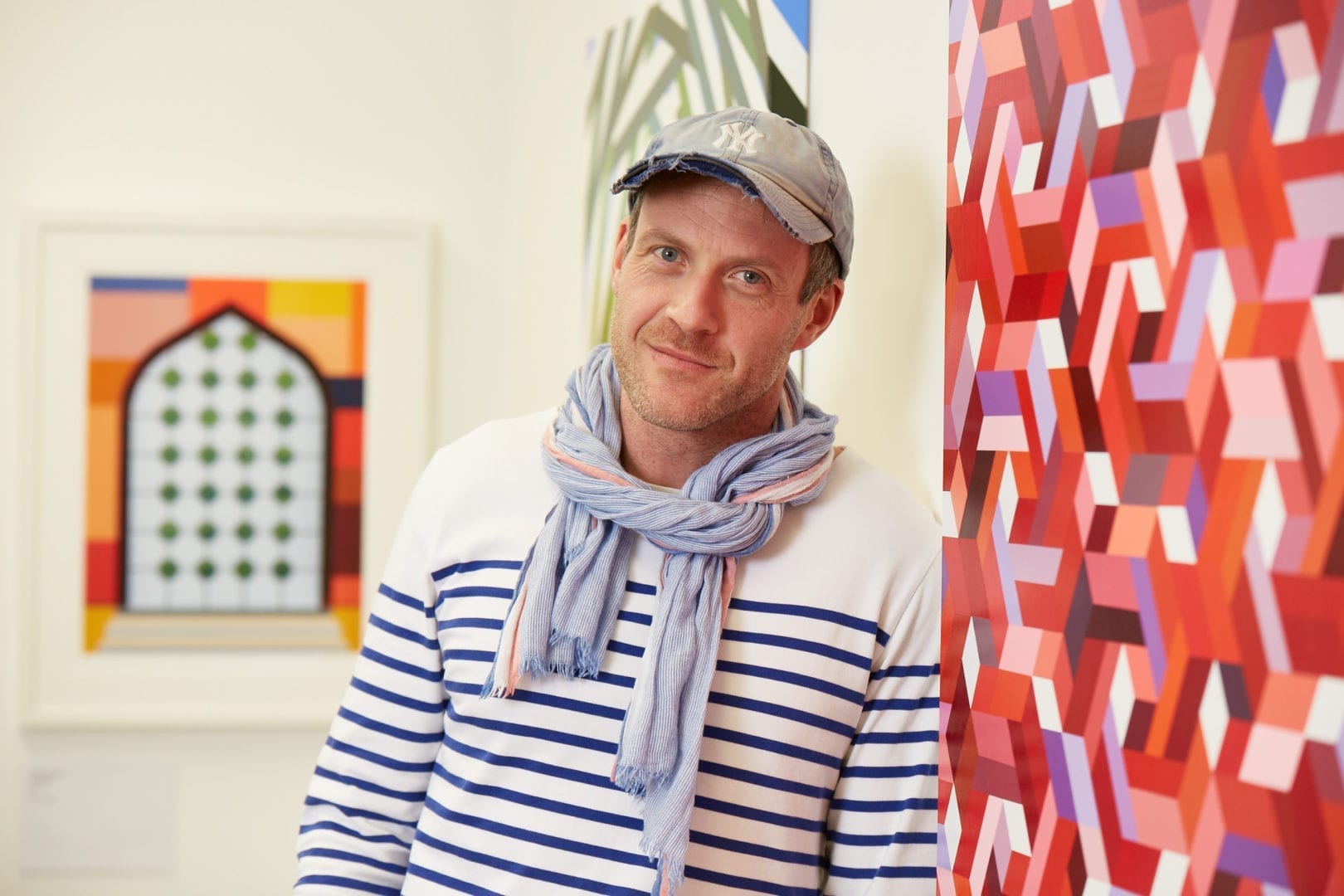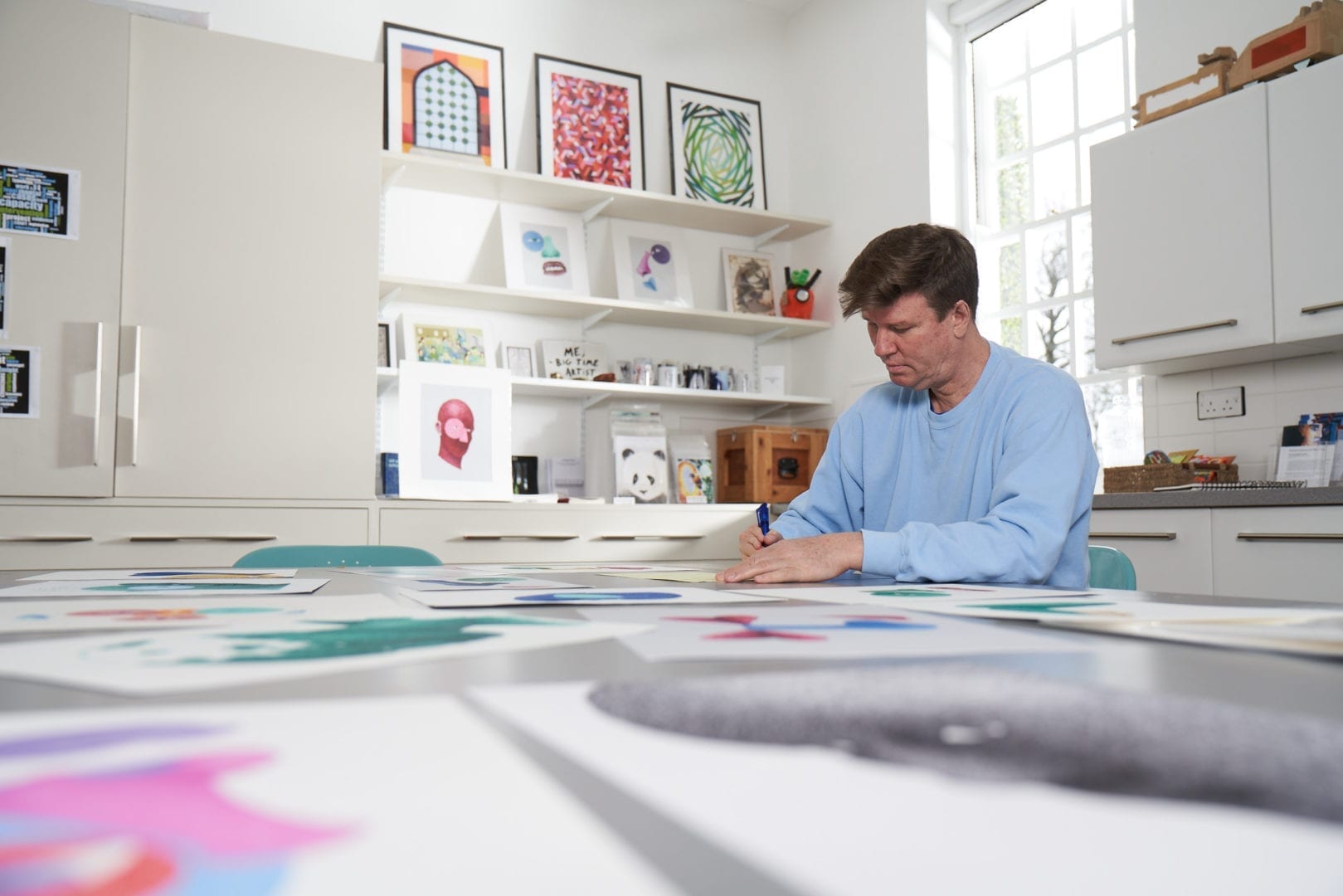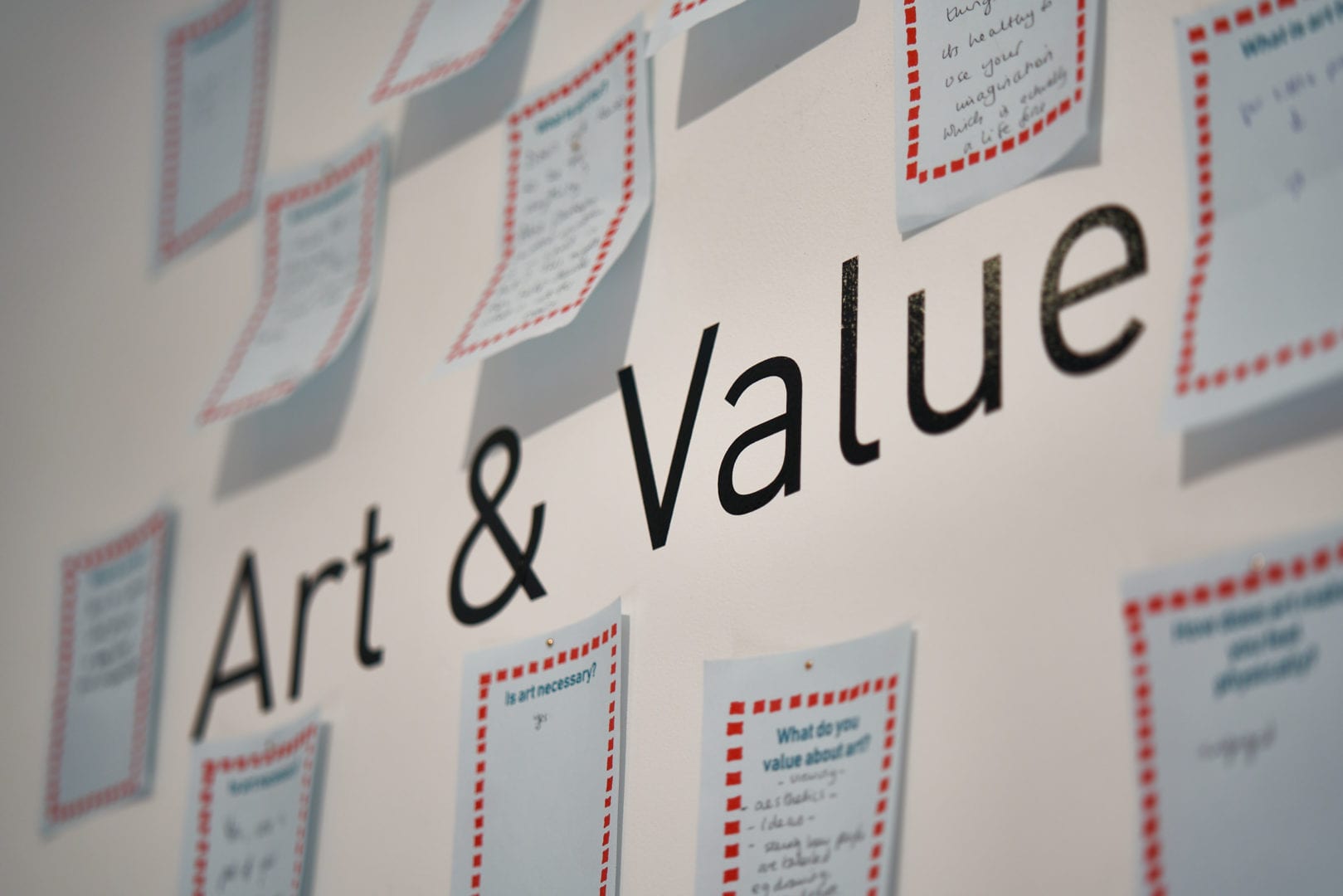Bethlem Gallery is a subsidiary of the Maudsley Charity. The core funding provided by the charity supports the gallery’s programme and artists.
In 2015, Maudsley Charity contributed a total grant of £2m to the relocation of Bethlem Gallery and Bethlem Museum of the Mind into a new home at Bethlem Royal Hospital.
Maudsley Charity recognises the essential role the arts play in health and recovery and the important opportunities the Bethlem Gallery provides to patients and former patients of South London and Maudsley NHS Foundation Trust (SLaM).
Bethlem Gallery was established in 1997. It exists to support contemporary artistic practice and provides a professional space for high-quality artwork, fostered by a supportive artist-focused environment, offering opportunities for experimentation, collaboration and skills exchange.
Watch a video about the Bethlem Gallery:
Developing the expertise of former and current patients
Through a programme of exhibitions, events, residencies, workshops, and interdisciplinary research the Gallery strives to develop the careers, experience and expertise of individuals who are either current or past patients of SLaM.
Bethlem Gallery and Bethlem Museum of the Mind are two unique organisations based within a stunning Art Deco building based within the grounds of the Bethlem Royal Hospital, the original Bedlam, now located in the London borough of Bromley.
They work collaboratively to shape a creative and cultural landscape with the aim of encouraging better understanding of mental health and to challenge stigma. Collaboration plays an important role in the work of the gallery.

“Thanks to occupational therapy, I started to paint”
Service user Martin says, “I simply didn’t realise at first that the subject matter of my art was the emotions and feelings of the human condition. Through trauma I had become utterly confused about my sense of self and the world I was supposed to be part of. Thanks to occupational therapy, I started to paint what I couldn’t express in words alone. I had never painted before.
‘Through intensive compassion-focused therapy at the Bethlem Royal Hospital I discovered a great deal about distress and common humanity. A huge part of this shift was engaging in art and I would not have made such progress without the ability to share my compassionate voyage with an audience. The Bethlem Gallery staff give me support to find that audience.’
Martin continues, ‘Connecting in such an intimate and honest way allowed me to overcome what I was experiencing, feel human and offer encouragement to others along the way. My art and the sharing of it has become even more important now as I continue in my recovery towards self-acceptance and my career as an artist. I have been fortunate to have the opportunity and freedom to be, and feel like, an artist. Life is lived in multicolour!’

“It’s a way of articulating my psychological and emotional journeys”
Courtney is an artist at the Bethlem Gallery and a patient on a forensic ward of Bethlem Royal Hospital. He comes to the Gallery because for him “art is the only thing I’m really passionate about – It’s a lifeline.”
When at the Gallery, Courtney works on his drawings and sketchbooks, conducts research or simply relaxes. He is led by professional artists, who promote his development, supporting him to sell and exhibit his work, which he has done at venues like the Dragon Café, Southbank Centre and Wellcome Collection.
He makes films, paintings and sculpture to better understand his own mental health: “It’s a way of articulating my psychological and emotional journeys that can’t be expressed in other ways.”
Making art in itself is also therapeutic: “Working on a drawing helps me stay in the moment and be mindful. It teaches me discipline as well, as I often work on one drawing for weeks, and I have to be able to stop and come back to it later”.
He used to feel self-conscious and insular due to his physical differences with the people around him growing up, but art is a “way of being playful with those differences” and has developed his self-confidence: “it is my vehicle for social entry”.
"One patient said to me, for the first time in his life he felt human, truly human – why? Because when his art was seen outside a hospital context he was seen as a person, people talked to him as a person rather than a patient."
Support us
Your donation can enable us to provide access to the arts for current and former hospital patients. Please support us and help us make a difference.
Donate now
